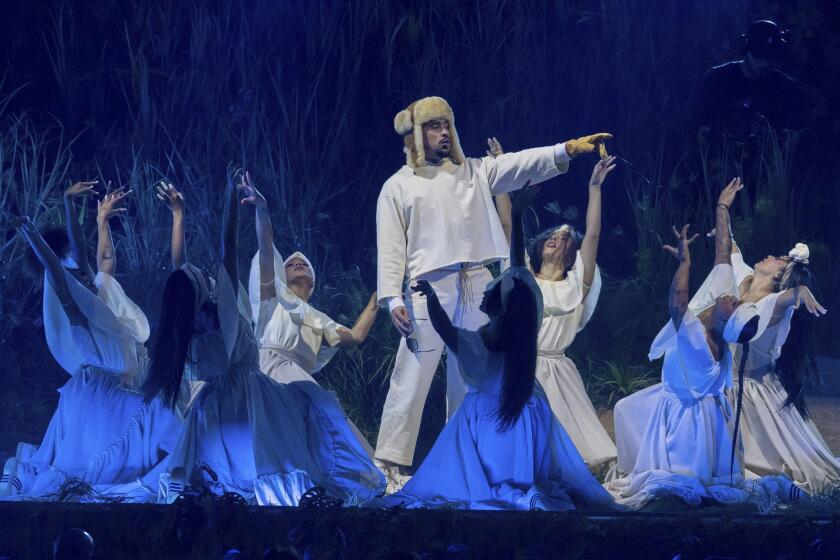
Bad Bunny to Headline Super Bowl Halftime Show, Sparking Political Backlash
The NFL has officially announced the musical headliner for the upcoming Super Bowl halftime show, and it's not who many expected. Instead of a traditional rock icon like Kid Rock, the spotlight is shining on Bad Bunny, a global superstar known for his dynamic performances and cultural influence. This choice has ignited a wave of criticism from conservative circles, who see it as another example of “woke” culture infiltrating American institutions.
Bad Bunny, whose real name is Benito Antonio Martínez Ocasio, is one of the most-streamed male artists on Spotify, with his latest album, DeBÍ Tirar Más Fotos, already surpassing 7 billion streams. His selection for the 2026 Super Bowl halftime show marks a significant milestone, not only for him but also for the representation of Latinx culture in mainstream American entertainment.
A Controversial Choice
For some critics, the decision to feature Bad Bunny is seen as a deliberate move to provoke a reaction. Conservative commentators have pointed to his advocacy for immigration reform, his support for Kamala Harris during the 2024 election, and his tendency to wear feminine clothing as reasons to question the NFL’s motives. They argue that the NFL is catering to a specific political agenda rather than simply choosing an artist who resonates with millions of fans.
“This is a clear sign that the NFL is self-destructing year after year,” said conservative commentator Benny Johnson. “Bad Bunny is a massive Trump hater and anti-ICE activist. He doesn’t even perform in English.”
These claims have been met with skepticism by others, who point out that Bad Bunny has a long history of performing in the U.S. and that his decision to avoid mainland U.S. dates on his recent tour was based on concerns about ICE agents targeting fans at concerts. “There were many reasons why I didn’t show up in the U.S., and none of them were out of hate,” he clarified in a statement to I-D magazine.
Cultural Significance
Despite the controversy, Bad Bunny has expressed pride in representing his heritage and community. In a brief statement following the NFL’s announcement, he emphasized that the performance is more than just a personal achievement. “What I’m feeling goes beyond myself,” he said. “It’s for those who came before me and ran countless yards so I could come in and score a touchdown. This is for my people, my culture, and our history.”
His words reflect the broader significance of his selection. For many, Bad Bunny represents a new era of inclusivity and representation in major American events. His music, which blends reggaeton, hip-hop, and pop, has helped bring Latinx culture into the mainstream, and his presence at the Super Bowl is a testament to that shift.
The NFL and Music Partnerships
The NFL’s decision to partner with Jay-Z’s Roc Nation in 2019 has further fueled speculation about the influence of certain figures in shaping the Super Bowl halftime show. Under this partnership, the event has featured a range of high-profile performers, including Jennifer Lopez, Shakira, Kendrick Lamar, and Rihanna. These choices often spark debate, particularly when they involve politically charged messages or cultural statements.
Kendrick Lamar’s 2025 performance, for example, drew sharp criticism from right-wing groups. His use of Black dancers in an American flag formation and guest appearances by figures like Samuel L. Jackson were seen as direct challenges to the status quo. Similarly, Beyoncé’s 2016 performance of “Formation” sparked backlash for its references to Black empowerment and the Black Lives Matter movement.
The Debate Over Representation
While some critics continue to voice their discontent, others argue that the NFL’s choices are simply reflective of current trends in music and culture. With Bad Bunny’s massive global following and commercial success, it makes sense that he would be chosen for such a high-profile event.
Still, the debate over the Super Bowl’s cultural and political implications continues. Some conservatives have even claimed that the NFL is manipulating game outcomes to benefit certain individuals, such as Travis Kelce and Taylor Swift. While these claims lack evidence, they highlight the growing polarization around the event.
Looking Ahead
As the 2026 Super Bowl approaches, fans can look forward to a performance that promises to be both entertaining and culturally significant. Bad Bunny’s selection is a bold statement, and while it may not please everyone, it reflects the evolving landscape of American entertainment and the increasing influence of diverse voices.

Post a Comment